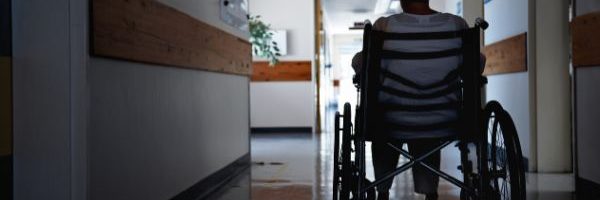Bed sores, also known as pressure sores or decubitus ulcers, can be one of many warning signs of nursing home neglect. According to the Center for Disease Control and Prevention (CDC), more than 1 in 10 nursing home residents has a pressure sore. Bed sores are most often the result of negligence and are entirely preventable with appropriate care.
What is a Bed Sore?
A bed sore is an injury to the skin and underlying tissue that results from prolonged pressure on the skin. Pressure sores on the skin can squeeze shut the capillaries that deliver blood to the skin and underlying tissue. Without fresh blood to bring in oxygen and flush out metabolic waste, the tissue can become damaged and start to die. Pressure sores then become painful open wounds.
Bed sores most often develop on skin that covers bony areas such as the hip, ankle, heel, shoulder blade, or tailbone. People most at risk for pressure sores are those that are bed-bound or in a wheelchair and unable to easily move themselves. Symptoms of a bed sore include:
- Swelling
- Unusual changes in skin texture and color
- Areas of the skin that feel cooler or warmer than others
- Pus-like draining
- Tender areas on the skin
Untreated bed sores can lead to serious, life-threatening infections such as septicemia. Pressure sores are typically slow to heal because of their location. Some bed sores cannot be cured completely and can have lasting effects on a patient.
How are Bed Sores Prevented?
People in nursing homes who are unable to move themselves easily, rely entirely on the staff of the home to help prevent pressure sores. In order to prevent bed sores, nursing home staff must:
- Keep the resident’s skin clean and dry
- Change the resident’s position every two hours. When positions are changed often, it leads to less pressure on the skin.
- Use products and pillows that relieve pressure
- Move the resident properly because friction on the skin can also cause sores
Nursing homes that fail to take steps to prevent pressure sores are negligent and should be held responsible for any injury caused to a resident. The presence of bed sores can also be a sign that a resident is being neglected in other ways in addition to a failure to prevent the sores.
Contact a Trusted Attorney
If you or a loved one has been injured due to nursing home negligence, you need an experienced and trusted attorney on your side. At Bonina & Bonina, P.C., we have over 50 years of experience helping injured New Yorkers. Contact us online or call us at 1-888-MEDLAW1 to schedule your free consultation. Home and hospital visits are available. Se habla español

